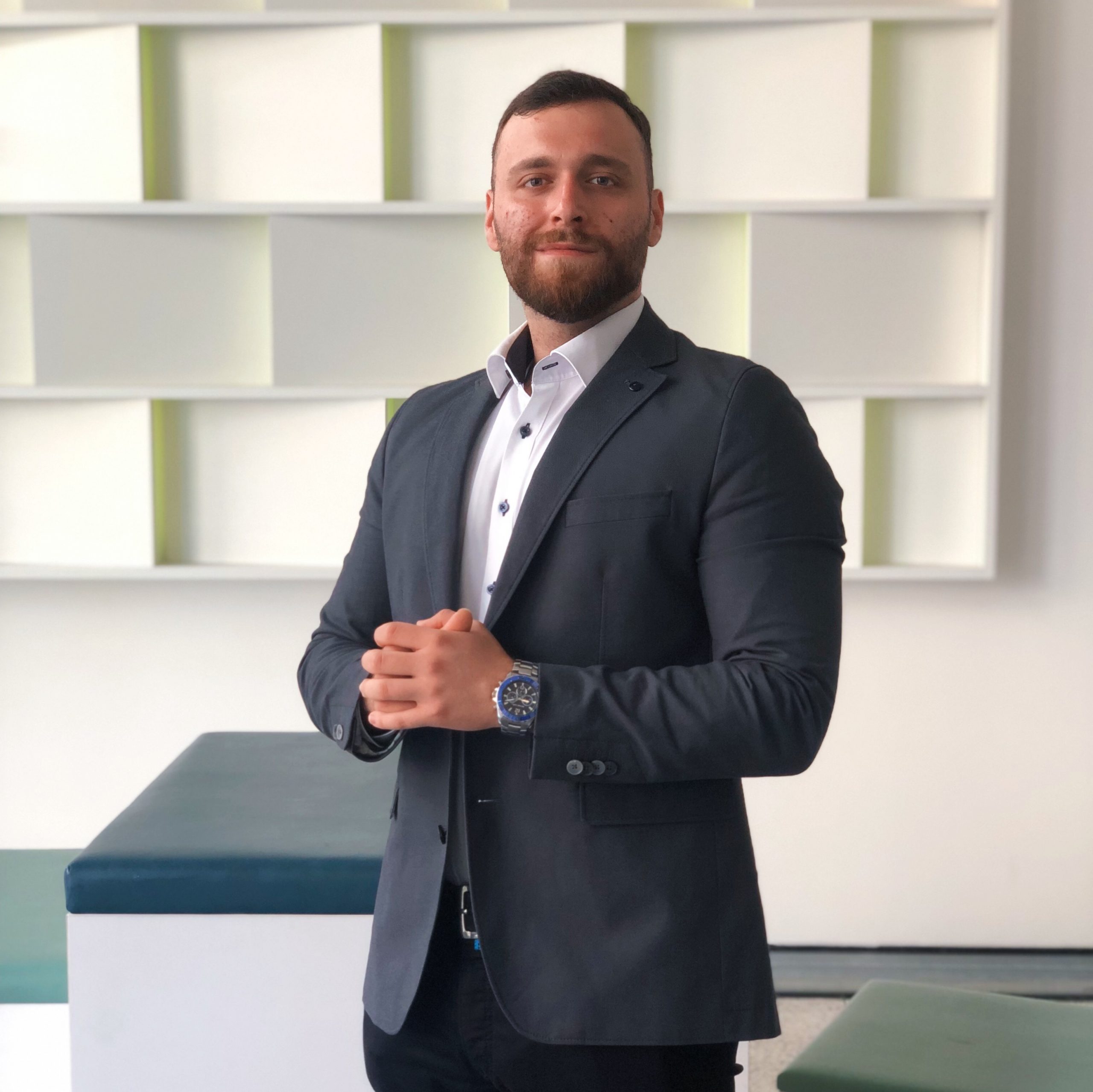Steep learning curve and diverse insights
Interview with Konstantin Rudel, trainee at Kloepfel Consulting.
What made you decide to apply for the trainee position at the Kloepfel Group?

After I graduated in business psychology in 2022, I traveled through Thailand and Vietnam and did a work and travel program in Australia. When I came back, I wanted to decide on a professional direction. Since the consulting industry is considered high-level, I chose this field and started my trainee program at Kloepfel in July 2023. I chose the trainee program because it gives me a higher learning curve through training in different areas. My aim was to gain an overview of the entire industry and the activities of the whole company.
In the first month, I worked in the potential analysis department, where I learned about the benefits of analysis and how to process data. I also had my first customer contact. Despite my limited industry experience to date, my learning curve was very steep.
I then spent two months in Technical Sourcing, where my colleagues showed me all about supplier contacts, bid procurement and tendering processes. This phase was the highlight of the trainee program for me.
I then spent two weeks at Kloepfel Engineering, where I carried out self-calculations using a tool developed by Manfred Esser. This enabled me to acquire basic knowledge for this area, even though I had hardly any experience in engineering.
Afterwards, I transitioned to the back office for a period and delved into sales for three weeks, aiming to broaden my understanding in that domain. Following this, I dedicated a week to Executive Search and another three weeks to internal recruiting. The highlight of my experience was undoubtedly overseeing the assessment center.
Since January 1, 2024, I have been working in project work and am responsible for handling a wide range of projects.
What expectations did you have of the trainee program and to what extent were they met?
My learning curve was very steep over the entire six months. Kloepfel specializes in consulting on optimizing purchasing and logistics. At the beginning, I had hardly any in-depth knowledge in this area. Thanks to my colleagues and the workload, I was able to build up a great deal of expertise in a short space of time.
For example, I was allowed to accompany my colleagues to a customer meeting on my first day at work. I could only listen to the conversation. Due to the use of industry-specific language, I was initially unable to fully understand the content of the conversation. Now I’ve reached the point where I can talk to customers myself about a wide variety of articles and projects and have built up a good foundation.
In which area that you have worked in could you see yourself working in the long term? Why this area?
In the long term, I see myself in consulting. In this area, the activities are varied from day to day, as different projects cover different topics and I always have to learn something new. This constant expansion of knowledge is very important to me in the first place. As the work varies from topic to topic, I also get a better overview and understanding of the industry. For me, the end of my learning process would mean not only standing still, but also taking a step backwards; in consulting, I never stop learning.
What was your biggest challenge during the trainee program?
I had to face several challenges during my trainee program. On the one hand, balancing out the difference in professional knowledge between the long-standing consultants and myself. I also had my first customer contact, where I had to pay particular attention to professional and industry-specific communication. I learned how to actively help with questions and difficulties. I had to become an expert in a short space of time. In my opinion, this was a good challenge that I successfully mastered.
How did you deal with challenging tasks or unexpected situations?
If a task was very challenging or an unexpected situation arose, I sought the support of my colleagues. If my colleagues didn’t have the time, I researched on the Internet or consulted with the customer to solve the problem myself. There are many ways to achieve a goal and nothing is impossible, no problem is unsolvable.
I can give you an example of this. I drew up invitations to tender for a project and sent them to the customer. A day later, I received a call back and the customer asked questions about the implementation of the new EU Supply Chain Due Diligence Act. This is about the responsibility of companies to guarantee human rights and environmental standards along their supply chain. However, it is currently not yet possible for many suppliers to provide all the data correctly, which makes it difficult to implement the law. As the law was quite new at the time, I didn’t have a broad knowledge of the exact regulations either. I then asked the customer to collect all the questions in an email. I researched the law and then discussed it with my colleagues. In the next step, I approached the customer again and explained the current problems regarding the implementation of the law. My proposed solution was to include information about the law in the tender, but exact figures could not yet be obtained. The challenge was to decide which answers I should give the client in the first meeting and which I should put on hold for the time being.
What was your most successful project?
In my first two months, I was involved in technical sourcing projects where I was able to achieve the first quotations and theoretical savings thanks to the preliminary work of my colleagues. That was the most successful project for Kloepfel that I was involved in before I was given my own project topics.
I am currently involved in two projects covering five different subject areas. In these projects, I am responsible for a wide range of tasks – from initiating tenders to establishing and maintaining contact with suppliers through to successful completion. This project is the most successful in terms of my personal learning curve.
Please summarize your assessment of the Kloepfel trainee program
In summary, I can say that the trainee position was very informative and met my expectations. I had a steep learning curve so that I now have a sound knowledge of the industry and can work independently on projects. I was well received by my colleagues and many colleagues still take the time to show me things or answer my questions. I don’t take that for granted. I can definitely recommend the trainee program.
Contact:
Kloepfel Group
Christopher Willson
Tel.: 0211 941 984 33 | Mail: rendite@kloepfel-consulting.com


